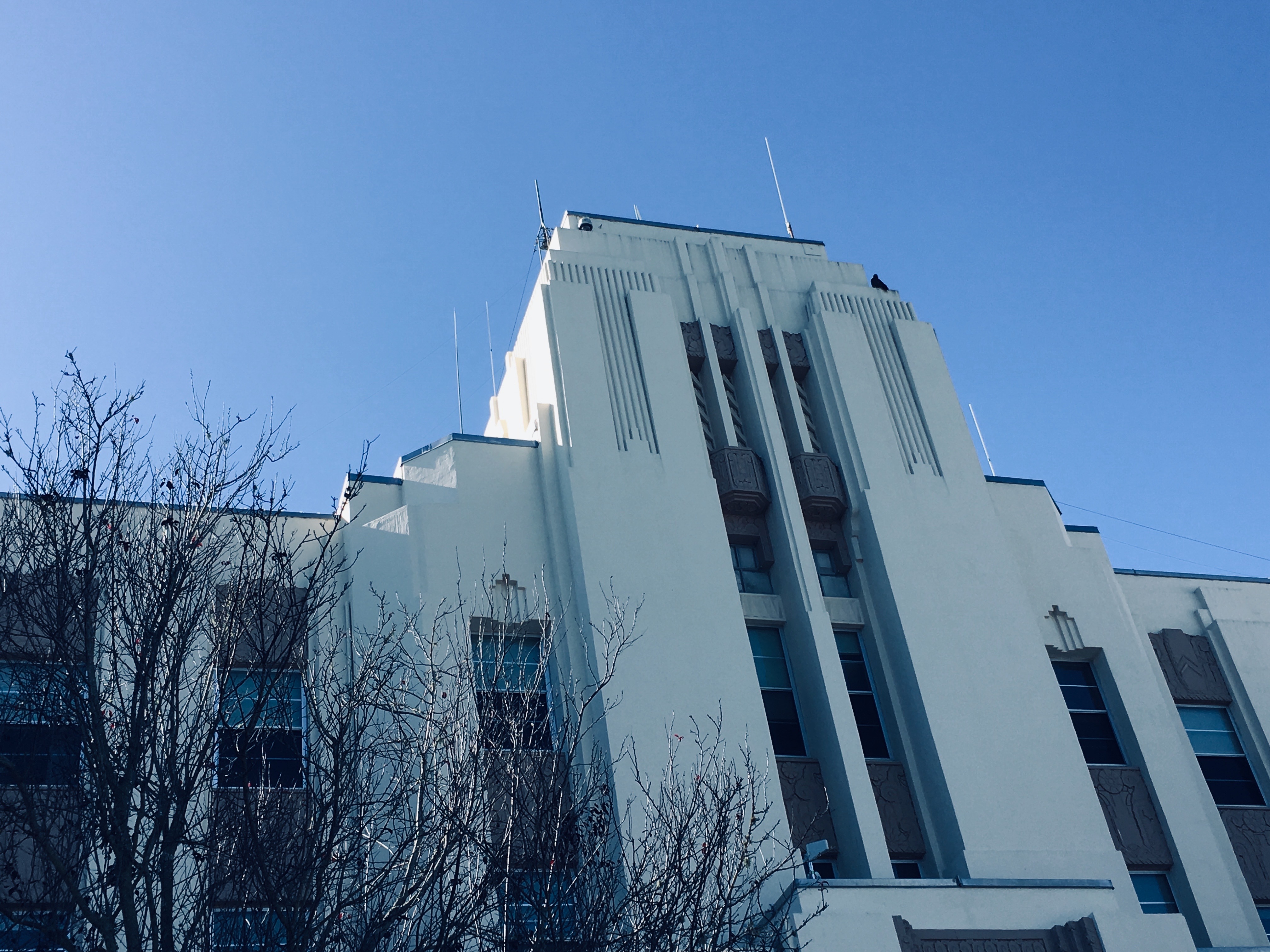Welcome to Fort Miley, a special corner of the city where University of California, San Francisco, meets veterans' healthcare.
 The San Francisco Veterans Affairs Health Care System (SFVAHCS) is closely affiliated with UCSF. That relationship is especially evident in the VA Medical Service, the academic partner of the UCSF Department of Medicine. In fact, the concept of a close, mutually beneficial and formal affiliation between a medical university and a VA medical center was created in the 1960s at UCSF, later spreading to other parts of the VA system.
The San Francisco Veterans Affairs Health Care System (SFVAHCS) is closely affiliated with UCSF. That relationship is especially evident in the VA Medical Service, the academic partner of the UCSF Department of Medicine. In fact, the concept of a close, mutually beneficial and formal affiliation between a medical university and a VA medical center was created in the 1960s at UCSF, later spreading to other parts of the VA system.
UCSF medical students, residents, and fellows rotate through the VA which provides nearly one-third of all of the University's medical training. The SFVAHCS has no freestanding training programs of its own; every aspect is fully integrated with UCSF. In addition, each VA staff physician in the Medical Service is a full UCSF Department of Medicine faculty member, following the same process for appointment and promotion as those based in other campus sites. The VA Medical Service Chief serves as the Vice Chair of the Department of Medicine, coordinating academic affairs at the VA with those across the broader Department.
Overview of Activities
 UCSF medical students, residents, and fellows rotate through the VA which provides nearly one-third of all of the University's medical training. In addition, VA staff physicians are full UCSF Department of Medicine faculty members, following the same process for appointment and promotion as those based in other campus sites. The VA Medical Service Chief serves as the Vice Chair of the Department of Medicine, coordinating academic affairs at the VA with those across the broader Department.
UCSF medical students, residents, and fellows rotate through the VA which provides nearly one-third of all of the University's medical training. In addition, VA staff physicians are full UCSF Department of Medicine faculty members, following the same process for appointment and promotion as those based in other campus sites. The VA Medical Service Chief serves as the Vice Chair of the Department of Medicine, coordinating academic affairs at the VA with those across the broader Department.
The VA Medical Service shares overarching missions with the University: patient care, medical education, and research, with patient care being a key focus of the national VA system. The VA patient population of U.S. military veterans is often older than that of other hospitals and comes from a wide geographic region served by this facility, including areas as far as Nevada and the California-Oregon border. Patient care at the SFVA is dramatically enhanced by the longstanding existence of an electronic medical record system wherein patient information is readily accessed locally or remotely allowing more efficient and integrated care. Our site is further distinguished by its numerous subspecialty divisions at the cutting edge of innovation, care delivery, and research, making it a high-volume referral center serving an even wider catchment area.
Medical education at the VA consistently receives top ratings from learners over the decades. It is enriched by the VA mission and dedication to U.S. veterans felt throughout the facility. Attending physicians with keen awareness of veteran-specific ailments engage in patient-based medical education and expertly role-model careers of academic faculty as investigators, educators, and care providers. The VA has long been a site at which novel educational models have been conceived and successfully implemented, including one of the first longitudinal third-year medical student clerkships (VALOR) and the Center of Excellence in Primary Care Education (EdPACT) as well as the PRIME residency program.
Research—translational and benchtop—is likewise a robust and distinguished area of excellence at the VA Health Care System. Facilitated by a VA-based nonprofit research organization, SFVAHCS-based faculty members are supported by more NIH grants than any other hospital in the VA system and also have access to research funding from the VA and other external sources. VA research ranges from laboratory to clinical and outcomes in focus. The VA is also playing a leading role in the UCSF Clinical and Translational Research Institute, an ambitious NIH effort to stimulate the translation of basic scientific findings to improve individual and population health.
